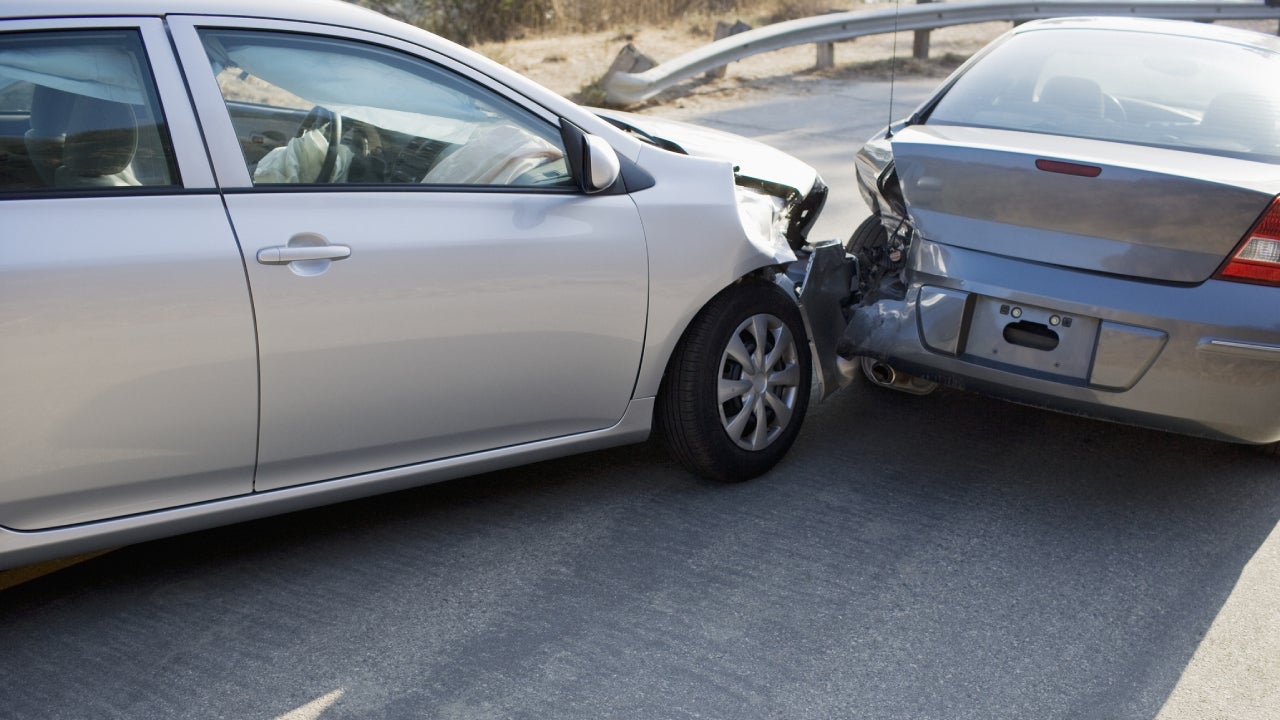What is a car warranty?

Key takeaways
- A car warranty is a guarantee provided by a manufacturer, dealership or other third-party company to repair certain mechanical or electrical failures (excluding normal wear and tear) that occur within a set timeframe or mileage limit after purchasing a vehicle.
- There are several types of car warranties — some are automatically included when buying a car, while others are optional for purchase.
- An extended warranty may be worth considering if the cost is lower than the expected price of future major repairs.
- A car warranty is different from car insurance, which covers damage from accidents and other external events.
A car warranty is a contract provided by your vehicle’s manufacturer or a third party that guarantees they’ll repair or replace certain components that fail due to defects in materials or workmanship within a specified timeframe or mileage limit. A car warranty covers repairs that a standard car insurance policy wouldn’t cover, but it typically won’t pay for maintenance or normal wear and tear. To help you understand how your warranty works or determine whether an extended warranty makes sense for you, Bankrate’s insurance editorial team broke down the basics of car warranties.
What is a warranty on a car?
A warranty on a car is a type of service contract that covers certain components of your vehicle, such as the engine, transmission and electronic systems, that are subject to mechanical defects. When you get a warranty on a new car, it’s basically a guarantee from the manufacturer that your car is in working order — and that if it turns out to have unexpected problems with key components, they’ll foot the bill to fix it.
- How a warranty works: If your car needs repairs that weren’t caused by an accident and don’t fall under the bill of normal wear and tear, your dealer can file a warranty claim. When the warranty provider authorizes the claim, the repairs can proceed under warranty at a reduced cost to you.
- What a warranty covers on a car: A comprehensive bumper-to-bumper warranty covers most parts in your car, but it won’t pay for damage caused by an accident or for parts that are designed to wear out, like brake pads. Other warranties may cover only certain components, such as the powertrain or restraint systems.
- How long a warranty lasts: New car warranties typically last for three years or 36,000 miles (whichever comes first), but some automakers, such as Kia and Hyundai, have longer warranties.
- What could void your warranty: You can void a typical car warranty by failing to perform regular maintenance, using your car for racing and other motorsports activities, towing too much weight or making unauthorized modifications to the vehicle.
Car warranties taken out after the manufacturer’s warranty expires are called extended warranties. Extended warranties must be purchased separately and typically have a deductible if purchased through a third-party provider. However, you may be able to avoid a deductible by extending your warranty through the manufacturer.
Types of car warranties
There are several types of car warranties — some come standard with the purchase of a vehicle, while others are optional and can be added at your discretion. Here’s a look at the key differences to help you understand which warranty might be available and useful for your current or future car.
Manufacturer’s warranty
Your manufacturer’s warranty is a guarantee that the vehicle is in proper working condition. This warranty is built to cover the costs of repairs and replacements if the car experiences a malfunction or breakage due to some fault on the manufacturer’s side. This type of warranty typically excludes damage due to an accident or other incident covered by insurance, normal wear and tear and damage caused by improper use of the vehicle. Manufacturers’ warranties come included with the purchase of most new cars.
Two of the most popular types of manufacturer’s warranties are powertrain warranties and bumper-to-bumper warranties.
- Powertrain warranty: Only covers damage to the vehicle’s propulsion system, including the engine, driveshaft and transmission.
- Bumper-to-bumper warranty: Covers nearly all vehicle components except for those designed to wear out over time, such as glass, tires and brake pads.
Extended warranty
When the manufacturer’s warranty on a vehicle expires, you have the option to purchase an extended warranty to add a vehicle service contract that applies after the original factory warranty is no longer active. You can either purchase an original equipment manufacturer (OEM) warranty from the automaker or an aftermarket warranty from a third party.
Dealership warranty
Dealership warranties are most commonly available for used cars or certified pre-owned vehicles, especially those that have exceeded their manufacturer’s warranty by way of age or mileage. Generally speaking, dealership warranties are shorter (30 to 90 days, or a few thousand miles) and are often less comprehensive than a manufacturer’s or extended warranty. It’s important to review the terms in writing, as coverage is not standardized and can vary widely between dealers.
While usually optional, some states require dealerships to provide a warranty with the sale of a used car. For instance, in Connecticut, used cars must have a dealership warranty of 30 days or 1,500 miles if sold for between $3,000 and $5,000, and 60 days or 3,000 miles if sold for more than $5,000. This helps protect consumers from unexpected repairs in the early days of ownership due to issues the dealer’s inspection may have missed.
Emissions warranty
As part of amendments made to the Clean Air Act, all new vehicles sold after 1995 must have an emissions warranty. An emissions warranty provides two years or 24,000 miles of coverage for any necessary repairs or modifications that may be required following a failed emissions test. It also offers eight years or 80,000 miles of coverage for major emission-related components, such as the catalytic converter or electronic emissions control unit (ECU). An emissions warranty is typically included as part of your manufacturer’s warranty, but it may also have its own separate documentation.
What is an extended warranty?
An extended warranty is a vehicle service contract that you purchase for your car. While it can be added to your purchase when you initially buy your car, the extended warranty often won’t apply until the factory warranty expires.
Within extended warranties, there are two primary types: original equipment manufacturers and aftermarket warranties. The first is issued by the original manufacturer of the vehicle. In contrast, the second is sold by car warranty companies or other third parties. There can be a significant variance between different aftermarket warranties. At the same time, most OEMs stay reasonably similar in structure to the original manufacturer’s warranty.
Buying an extended car warranty is a strategic choice. If your car experiences problems because of covered damages, you can file a claim with your extended warranty. If approved, the warranty company will pay for the repairs. These payments have limits specified within your warranty contract. There will be an initial service fee with each claim you file with the company.
The strategy within all of this is to estimate how likely your car is to experience the types of problems that a warranty covers within the time frame that the warranty is for, and then to compare the cost of a contract to those repairs. If the warranty would be cheaper or close in price, it could be a strategically sound investment. If the repairs would be less expensive out of pocket than the contract, there would be little reason to purchase it.
First-hand insights: Why extended car warranties get a bad rap
Extended warranties have become an object of ridicule thanks to phone scams that purport to be reaching out “about your car’s extended warranty.” But are extended warranties a tool for scammers — or are they the scam themselves? To get a better insight, we looked to Reddit forums where car sales professionals explained the difference.
Reddit user review
The bottom line: Legitimate extended warranties from both manufacturers and third parties exist, although they may not be right for every driver. If you’re not confident of your ability to pay for major repairs during the warranty’s covered period, it may be worth it — but read the terms carefully to understand what will (and won’t!) be covered before you sign.
Car warranty vs. car insurance
Car warranties and car insurance both help to offset out-of-pocket costs associated with repairing your car, but a warranty is not insurance. Car insurance is a mandatory form of financial protection that guards against incidents such as car accidents, severe weather and auto theft. Warranties, on the other hand, cover parts that don’t live up to manufacturer standards and result in premature repairs through normal use.
Car insurance also covers damages to others, including medical expenses and vehicle repairs you’re responsible for. The primary purpose of liability car insurance — the type mandated by most states — is to cover your legal liability, not your own vehicle. The table below gives a more detailed breakdown of what a warranty does cover on a car and what is instead handled by your car insurance policy.
| Type of damage | Car warranty | Car insurance |
|---|---|---|
| Damage to your vehicle from an accident | Not covered | Covered |
| Damage to other vehicles from an accident | Not covered | Covered |
| Damage to your vehicle caused by manufacturing defects | Covered | Not covered |
| Damage to your vehicle caused by improper uses, such as drag racing | Not covered | Not covered |
| Damage to your vehicle caused by wear and tear | Not covered | Not covered |
| Routine maintenance | Not covered | Not covered |
Frequently asked questions
Why we ask for feedback Your feedback helps us improve our content and services. It takes less than a minute to complete.
Your responses are anonymous and will only be used for improving our website.
You may also like

What does no-fault state mean?

What is permissive use car insurance?






